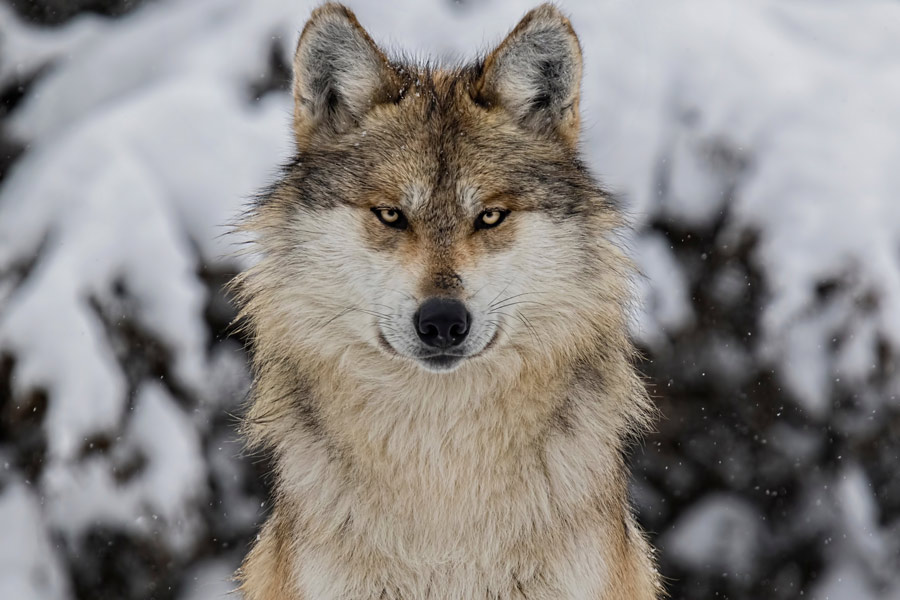Wolves are extremely wary of humans and not aggressive toward them by nature. Wolf attacks are the rarest of all large predator attacks. Respect for wild wolves and practicing wolf safety will help them resume their vital role as a part of the natural ecosystems of our planet.
However, if you do happen to come upon wild wolves, take precautions and use common sense. Stay calm and do not run. Stand tall to make yourself look larger. Slowly back away while maintaining eye contact. Keep any dogs you may have with you on a leash. Always hike and camp in a group — never alone!

Evidence from a few recent cases of humans being bitten during wild wolf encounters indicates these animals may have been fed by people, thereby losing their natural fear of humans and associating humans with food. In other cases, people may have been injured while trying to break up a fight between their dog and a wolf.
About half of the human fatalities from wolf attacks worldwide since about 1950 have involved wolves infected with rabies. Wolves are not major carriers of rabies, but contract it from contact with other wildlife harboring the disease. The severity of sporadic attacks by rabid wolves in Europe and Asia in past centuries likely contributed to a perception brought to North America by European settlers that all wolves were violently dangerous animals. However, in the United States and Canada, interactions involving rabid wolves and humans have rarely occurred due to the low overall incidence of rabies on the continent.

Attacks by non-rabid wolves typically involve captive wolves, healthy wild wolves that became habituated to humans (with or without food being present), territorial attacks by wolves on pet dogs where the dog owner tried to intervene, defensive attacks by wolves when trapped or cornered or when den sites with pups were threatened, wolves acting as predators under unique circumstances, and wolf-dog hybrids.
To prevent wolves from becoming habituated, while camping or hiking make sure you resist the temptation to approach wolves. Do not entice or allow wolves to come nearby, feed wolves, or leave food outdoors, including pet food. Do not approach fresh wolf kills, dens, or rendezvous sites, and do not let wolves become comfortable near human-inhabited areas. Notify authorities about wolves that seem comfortable around people, seek human food, or frequent human or livestock areas. Early intervention can keep a problem from getting worse, and virtually guarantee the safety of both people and wolves.
Featured Image from Eva Blue/Unsplash




